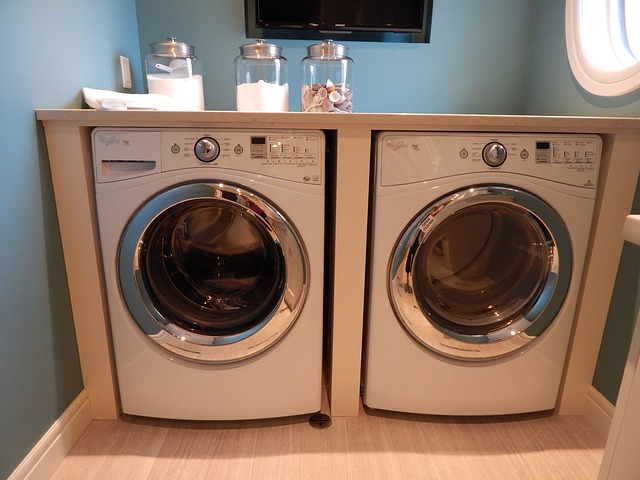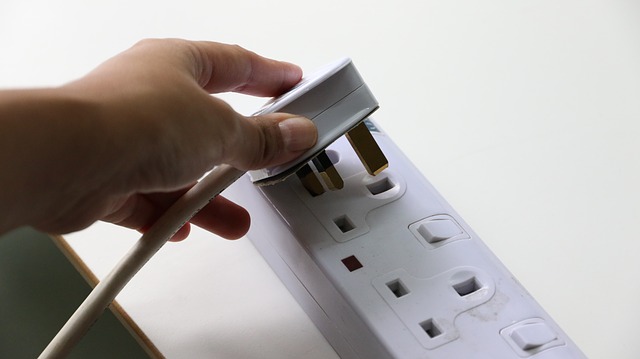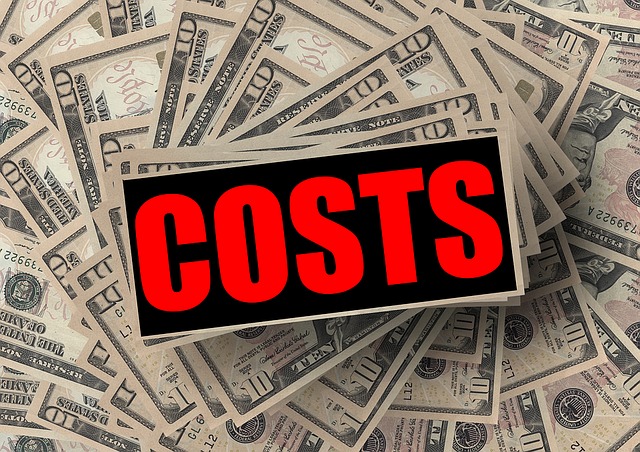
There’s no doubt these suggestions can be excellent ways to cut your home energy costs. However, not everybody has the cash or time available to put upfront to begin to reap the rewards of these cost-saving strategies.
Plus, some of these suggestions require modifying the structure of your home or apartment. This can be impractical, if not impossible to do, if you’re a renter.
Certainly, you could ask your landlord to make these changes so you could save money on your electric bill. And if you’re lucky, your landlord just might be willing, particularly if it’s a modification that increases the value of their property. But don’t be surprised if your request is met with a less than enthusiastic response.
However, all is not lost. You can still save money on your electric bill. What we’ve found is that simple behavior changes—all of which are free—can make a big difference in slashing your home energy bills.
Below are 7 easy things you can do right away that require very little effort and no extra expense. Whether you own your home or rent, you can use these tips to save money on your electric bill.
Tip 1: Laundry day? Use cold water!
According to General Electric (a company that’s made more than a few washers and dryers over the decades), washing your clothes in cold or warm water (as opposed to hot) is both good for the environment and a real money saver. That’s because heating the water accounts for a good portion of the energy cost of each load you wash.
Don’t be worried your clothes won’t get clean on a cold setting. Modern washing machines are designed to work well when using the cold water setting. According to GE, cold water is just fine for most clothes. It’s effective for removing common stains like makeup smudges and grass stains.
As an extra precaution, use cold-water detergents that include special chemicals that activate in temperatures as low as 60°F. Run your washing machine with full loads only and you’ll boost your energy savings even more.
However, there are three situations when cold water washing won’t be your best option.
1) When trying to prevent the spread of germs. If somebody in your household is sick, you’re better off washing bedding, towels, and clothing in hot water.
2) When the fabric requires a specified water temperature. Some fabrics may require warm or hot water to get clean. Follow the instructions specified on the garment or item you’re washing.
3) When the water temperature is 40°F or below. During winter months, the water temperature may drop too low for your detergent to perform well. To ensure your laundry gets clean, you may need to wash in warm or hot water.
Tip 2: Tame the clothes dryer energy monster.

Your clothes dryer can be responsible for a good portion of your monthly energy bill. One way to reduce this cost is to make sure you’re not over-drying your laundry. A few simple tips can keep your dryer working efficiently and save you money with each load.
- Clean the lint filter after each load. Lint builds up quickly and a dirty lint filter limits your dryer’s air circulation. This will lengthen the time it takes to dry each load, meaning you’ll be spending more money. To make matters worse, a dirty lint filter is a fire hazard. So, take the simple step of cleaning the dryer’s filter after each load. And don’t forget to clean outside vents on a regular basis as well.
- Use your dryer’s moisture sensor. Many new dryers come with a moisture or dryness sensor. If your dryer has a sensor, then the machine will automatically stop running when your clothes are dry. This helps you save money on your electric bill by eliminating the guesswork of trying to accurately set the timer feature on your dryer.
- Dry on a lower setting. While it may take longer for your laundry to dry, you’ll use less energy if you dry on a lower setting than a higher one.
- Dry towels separately. Sort your laundry by fabric weight. Dry heavy fabrics like towels separately from lighter fabrics.
Tip 3: Remove dirt and dust from refrigerator condenser coils.
Seems like household appliances are one of the biggest contributors to your high electric bill. Your refrigerator is no exception to this. That’s why it’s important to keep your refrigerator running efficiently if you’re keen on saving money on your electric bill.
The purpose of your refrigerator’s condenser coils is to transfer heat from the inside of the refrigerator to the outside. They play an important part in maintaining your refrigerator at a cold enough temperature to keep your food frozen or to prevent it from spoiling.
Unfortunately, the coils are also a veritable dust, dirt, and pet hair magnet. An accumulation of dirt on the coils cuts down on your refrigerator’s efficiency and increases your energy bill.
Some newer refrigerators have condensers that don’t require cleaning. However, if your unit does require cleaning, you’ll want to consult the manufacturer’s instructions on the correct way to maintain the condenser coils.
Some manufacturers recommend cleaning the coils at least once or twice a year (more if you have pets or if your refrigerator is located in a dusty area).
IMPORTANT: To minimize the potential of electric shock, always unplug your refrigerator before cleaning the coils and follow the instructions provided by the manufacturer.
Tip 4: Lower the temperature on your water heater.
According to Pacific Gas & Electric, you can save up to 22% of energy spent on water heating each year just by reducing your water heater’s temperature. In general, a temperature of 120°F should be sufficient for most purposes.
One exception is your dishwasher, which may require a water temperature of 130°F to 140°F. If your dishwasher has a dedicated “booster heater,” you may not need to increase your water heater temperature. Check your dishwasher’s manual for more information on what your model requires.
Also, if you’re going on vacation or will be away from home for several days, consider turning off or lowering the temperature on your water heater. You can save energy and money by turning the thermostat to “vacation mode.”
IMPORTANT: Before making any adjustments to your water heater’s temperature, you’ll want to do so safely. Be sure to read your water heater’s manual for safety instructions and follow them accordingly.
Tip 5: Reduce your TV’s brightness and contrast levels.

You can reduce your TV’s power use simply by adjusting the contrast and brightness settings. Use your remote control to access your TV’s functions and experiment with reducing the display settings. You might find the default setting is toward the high end of the brightness spectrum. You might discover a lower setting doesn’t diminish your enjoyment of your television, especially if it results in a savings on your electric bill.
For even more savings, try the same trick on other devices with displays, such as tablets, laptops, and cell phones.
Tip 6: Don’t block heating and cooling vents.
This easy tip simply requires you to remove anything that might be blocking the heating and cooling vents around your house. Move away from vents any furniture, boxes, carpets, or clutter that prevents air circulation.
The goal is to ensure the heated or cooled air can easily travel around the room. If you block the vents, you’ll end up paying for energy without actually heating or cooling your home. Your heating or cooling system will also end up working harder than necessary, which could over time affect the usable life of the unit.
And if you have an outdoor air conditioning unit, take the time to remove any debris around it. For best performance, your AC needs to circulate air without obstruction. Cut back vegetation to ensure proper air flow. During winter months when you’re not using the AC, cover the unit to prevent corrosion and to protect it from dirt. Be sure to read your user manual for other maintenance and safety tips.
Tip 7: Energy vampire alert! When not in use, unplug your electronics.

This is probably a tip you’ve heard before, but it’s worth repeating. It just might be the easiest no-cost way to save money on your electric bill.
If you’re like most people, you probably have a whole array of electronic devices plugged in at any time. Unplugging those devices when not in use could save you a bundle on your electric bill. That’s because even when your electronics are off, they can still draw power if they’re plugged in.
The devices that waste electricity (and increase your electric bill) are called “vampires.” Many vampire devices have a light or display that is always on even when they are turned off. This is a sign they are continuously drawing energy while they are plugged in.
Here are some examples of energy vampires you might want to consider unplugging when not in use:
- DVDs
- Computers
- Microwaves
- Coffee makers
- Printers and scanners
- Cell phones
- Battery chargers
- Video games
- Devices with LED indicator lights
- Devices with a remote control
For Maximum Energy Savings, Get the Entire Household Involved!
Saving money on your electric bill doesn’t have to cost you a ton of money upfront nor does it have to be drudgery. Sometimes just adopting a few simple behavior changes is all you need to be successful. Once you start seeing how much money you’re saving, you might be motivated to find other ways to reduce your power usage.
To maximize your savings, encourage other members of your household to get onboard. If you have kids, find a way to make a game of reducing energy costs. Establish a savings goal, one your family can realistically achieve in a short time. If you meet that goal, celebrate with a small treat the whole family can enjoy. A special movie night or a trip to their favorite pizza restaurant might go a long way toward motivating the whole family to participate.
BONUS TIP: Don’t forget to read the owner’s manuals for your appliances and electronics. Manufacturers are more aware than ever of the need to conserve energy. You’ll frequently find tips on how to use and maintain your appliances. You’ll likely find tips that not only extend the life of your product (a big money-saver there!) but could also help cut the cost of your monthly electric bill.
More Tips
 Skoolie Living: On the Road with Author Jordan O’Donnell
Skoolie Living: On the Road with Author Jordan O’Donnell
Interest in skoolie living has skyrocketed! O’Donnell gives us a glimpse of life on the road promoting his new novel. Read More
 When You Should (and Shouldn’t) Pay Rent With a Credit Card
When You Should (and Shouldn’t) Pay Rent With a Credit Card
It’s tempting, but should you really? Beware of fees, interest charges, and credit score dangers. Read More
 7 Tips for Saving Money on Homeowners Insurance
7 Tips for Saving Money on Homeowners Insurance
Smart tips to protect your home with affordable homeowners insurance. Save money and still get the coverage you need. Read More
 Landlords and Tenants: Trading Places
Landlords and Tenants: Trading Places
A new program hopes to improve student / landlord relations by helping them understand each other’s position. Read More
 Don’t Let This Medicare Myth Wipe Out Your Retirement Nest Egg
Don’t Let This Medicare Myth Wipe Out Your Retirement Nest Egg
What you don’t know about Medicare could cost you a small fortune. Learn how to protect your retirement dreams. Read More
 7 Surprising Facts Anyone Entering a Housing Lottery Should Know
7 Surprising Facts Anyone Entering a Housing Lottery Should Know
These housing lottery facts spotlight little-known secrets about this growing trend in housing. Millions have affordable new homes. Will you be next? Read More
 Would You Live in a “Zombie Property?” These Might Tempt You…
Would You Live in a “Zombie Property?” These Might Tempt You…
With low prices and modern amenities, renovated “zombies” are becoming a favorite among bargain house hunters. Read More
 Affordable Housing Lottery: 7 Tips for Winning Your New Home
Affordable Housing Lottery: 7 Tips for Winning Your New Home
Winning an affordable housing lottery is a daunting task. But these tips give you a leg up over the competition. Read More
 Mansions Now Among the Best Cheap Homes for Rent in Vancouver
Mansions Now Among the Best Cheap Homes for Rent in Vancouver
Beer budget but champagne tastes? Not to worry — new tax laws mean some lucky folks can now afford to rent luxury homes! Read More
 Attention Students: 7 Ways a Senior Home Share Saves You Money
Attention Students: 7 Ways a Senior Home Share Saves You Money
Are you a student? Do you have friends or family members who are students? A great way for students to save money on housing is … Read More
 7 Hidden Costs of Building a Shipping Container Home
7 Hidden Costs of Building a Shipping Container Home
Don’t get caught off-guard by the cost of building your dream shipping container home. Check out these 7 hidden costs and prepare your budget in … Read More



